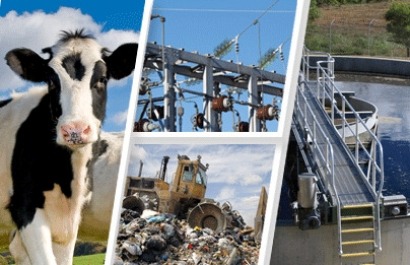
"President Obama has laid out a new era for American energy—an economy fueled by homegrown and alternative energy sources that will be designed and produced by American workers," said Vilsack. "These programs support that vision by helping biorefineries use renewable biomass as a replacement fuel source for fossil fuels and supporting advanced biofuel producers as they expand production."
Bioenergy support
The Repowering Assistance Program provides approximately $25 million in funding to biorefineries that have been in existence on or before 18 June 2008. The purpose of the program is to provide a financial incentive to biorefineries to use renewable biomass in place of fossil fuels used to produce heat or power. By providing this assistance, USDA is helping these facilities install new systems that use renewable biomass.
The amount of the payment will be based on: (1) the cost effectiveness of the renewable biomass system; and (2) the percentage reduction in fossil fuels used by that biorefinery. The maximum amount an individual biorefinery can receive under the Notice is 50 percent of total eligible project costs up to a maximum of $10 million.
Eligible costs must be related to construction or repowering improvements, such as engineering design, equipment installation and professional fees. The application deadline for this program to receive funds for Fiscal Year 2012 is 1 June 1, 2012. For additional details, click here.
The United States Department of Agriculture (USDA) also announced the availability of up to $25 million to make payments to advanced biofuels producers who expect to produce eligible advanced biofuels at any time during Fiscal Year 2012. To be eligible for these funds, an advanced biofuels producers must have enrolled in the program by October 31, 2011, even if the producer has an existing contract with the Agency.
Payments will be made to producers of advanced biofuels derived from renewable biomass, other than corn kernel starch. These include cellulose, sugar and starch, crop residue, vegetative waste material, animal waste, food and yard waste, vegetable oil, animal fat, and biogas.For additional details, click here.
Both of the programs referenced in the Federal Register are important parts of achieving the Obama Administration goal to increase biofuels production and use.
“The Obama Administration is working to promote domestic production of renewable energy to create jobs, reduce our dependence on foreign oil, reduce emissions, and build a stronger rural economy. Today, Americans import just over half of our transportation fuels – down from 60 percent when President Obama took office – but we can do more to meet the President's goal of reducing our net fuel imports by one-third by 2025,” said the USDA in a press statement.
At Secretary Vilsack's direction, USDA is working to develop the national biofuels industry by producing energy from non-food sources in every region of the country. “We are conducting and encouraging research into innovative new energy technologies and processes, helping companies build biorefineries – including the first ever commercial-scale cellulosic biofuel facilities – and supporting farmers, ranchers, and businesses taking risks to pursue new opportunities in biofuels. Along with Federal partners, we're establishing an aviation biofuels economy, and have expedited rules and efforts to promote production and commercialization of biofuels,” it went on.
USDA, through its Rural Development mission area, administers and manages housing, business and community infrastructure and facility programs through a national network of state and local offices. Rural Development has an active portfolio of more than $165 billion in affordable loans and loan guarantees. These programs are designed to improve the economic stability of rural communities, businesses, residents, farmers and ranchers and improve the quality of life in rural America.
For additional information:

